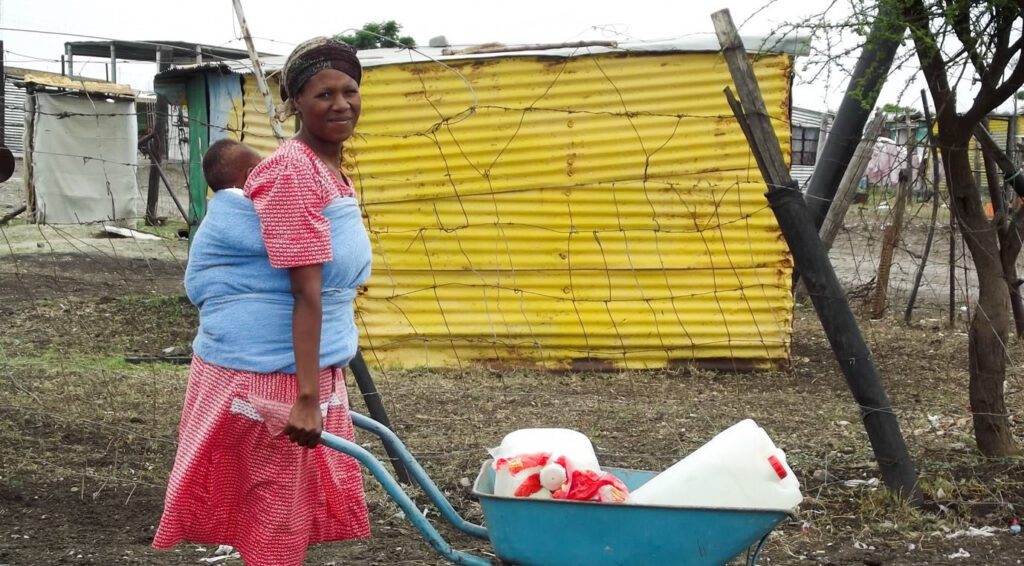
In some countries, including South Africa, the operation of large industrial mines affects large numbers of people – mine staff, suppliers, nearby families, migrant workers, and displaced people. A study carried out by Action de Carême in 2022 aimed to determine whether the impact of such mines in South Africa was gender-differentiated and what could be learned from this to support affected communities.
From the start, the author of the study established that the impact is multi-faceted and does not depend solely on gender but also on the individual’s racialized group and social class. Black people, for example, are significantly more affected by racism, patriarchy, and the underpinnings of capitalism in South Africa – a situation that persists nearly three decades after apartheid. On the other hand, new factors have emerged in recent years, such as increased subcontracting and a greater number of women working in mines.
Men are more severely affected by poor working conditions and illness, women by the increased burden related to caring for family members and the sick
The majority of those employed in or by mines are male migrant workers who suffer the impacts of instability and poor working conditions. Subcontracting has led to a further deterioration in working conditions. In this male-dominated environment, the evolution of South African law aimed at the integration of women in mining has not improved the situation. Instead, an increase in sexual violence is evident. When mining companies talk with communities, they are speaking to traditional authorities who are largely represented by men, thus excluding women from decisions that affect them.
As part of the study, the author visited a community suffering from the effects of coal mining. The people there spoke of the violence used against them and of the disrespect shown to them, their environment, and local cultures: forced displacement, demolition of houses, graves exhumed and reburied, regular explosions, etc. Water and soil contamination lead to crop failure and livestock dying. Consequently, respiratory diseases, food insecurity, and poverty have increased, scourges that disproportionately affect women. It is usually women who are responsible for taking care of their families.
The general feeling is that the mine has increased poverty among families that were previously self-sufficient. A few people – subcontractors, truck, and taxi drivers – have benefited. But even for these individuals, life remains precarious and the price to be paid (in terms of health, difficult working conditions, etc.) is high in relation to the benefits. Those who tried to protest against the mine spoke of violence, intimidation, and even assassinations.
Action de Carême’s partners stress the importance of taking this into account in our work on business and human rights. They also hope that these conclusions will serve to conceptualize the responsibility of mining companies and the impact of raw material consumption.